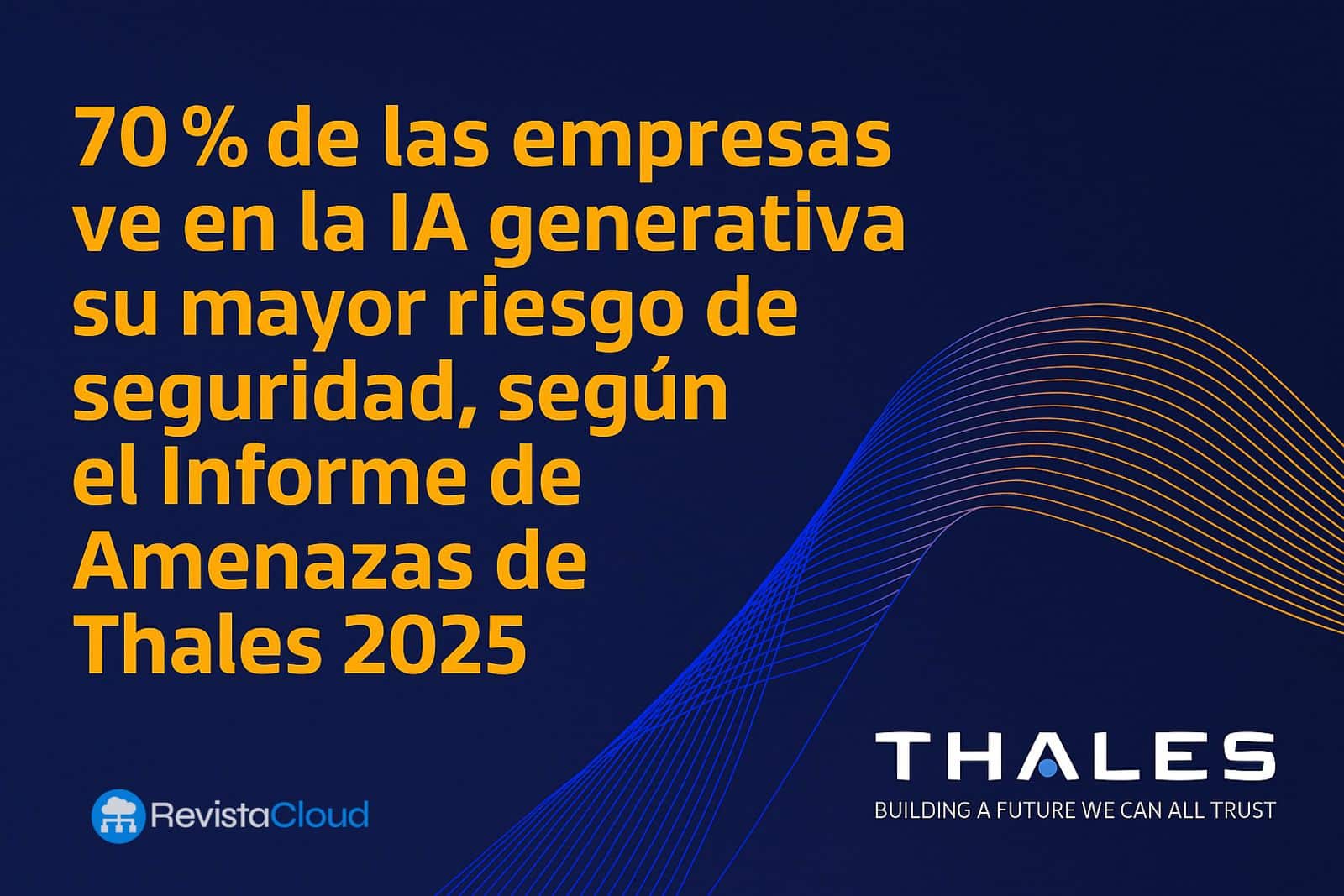The rise of agentic AI, the urgency to adopt GenAI, and the quantum threat are reshaping security priorities for organizations worldwide
The rapid advancement of artificial intelligence, particularly generative AI (GenAI), has become the primary cybersecurity concern for organizations globally. This is revealed in the Thales 2025 Data Threat Report, based on a survey conducted by S&P Global Market Intelligence 451 Research with over 3,100 IT and security leaders across 20 countries and 15 industrial sectors.
According to the report, nearly 70% of organizations believe that the fast pace of the GenAI ecosystem is the greatest security risk associated with this technology, even surpassing concerns about integrity (64%) or reliability (57%).
Rapid AI Adoption, Without Adequate Shielding
The report highlights how many companies are adopting GenAI without waiting for secure and mature infrastructure, leading to new vulnerabilities. One-third of surveyed organizations have already integrated GenAI into their operations, indicating a transition from experimentation to more operational use.
“Companies are rushing to incorporate generative AI faster than they can understand their own software architectures,” warns Eric Hanselman, Chief Analyst at S&P Global. “Competitive pressure to adopt GenAI is sidelining caution.”
AI Security Investment: Diversification and Urgency
73% of organizations have already invested in AI-specific security tools, either through new budgets or by redirecting existing resources. These investments are distributed among:
- Cloud providers (over 66%).
- Established cybersecurity vendors (60%).
- Emerging AI startups (almost 50%).
GenAI security has become the second highest priority for cybersecurity spending, only behind cloud security.
Data Breaches: Minor Improvements, But Threats Persist
In terms of incidents, the report points to a slight improvement: only 14% of respondents reported a data breach in the last 12 months, down from 23% in 2021. However, risks remain high:
- Malware remains the most frequently reported threat.
- Phishing has risen to second place, above ransomware.
- Hacktivists and state actors top the list of the most feared threat actors.
- Human error, while still relevant, falls to third place.
Post-Quantum Cryptography: The New Frontier
The report dedicates a key section to the concern over the post-quantum era, in which quantum computers could compromise current encryption systems:
- 63% fear that current cryptography will become obsolete.
- 61% warn of issues with secure key distribution.
- 58% are concerned about the “collect now, decrypt later” (HNDL) model.
In response, 60% are already working on post-quantum cryptography prototypes, although only one-third fully trust their cloud providers to manage this transition.
“The shift to PQC encryption is proceeding more slowly than expected. Time is running out,” notes Todd Moore, Global VP of Security at Thales.
Conclusion: AI is Accelerating, Security Must Keep Pace
The report concludes that while there is an observed improvement in overall preparedness, uncontrolled AI adoption—without proper safeguards—could destabilize progress. GenAI and agentic AI present unprecedented opportunities but also require robust data security, encryption, governance, and digital trust strategies.
🔗 For more information and to access the full webinar: Thales Group – Threat Report 2025
About Thales
Thales (Euronext Paris: HO) is a global leader in advanced technology applied to defense, aerospace, digital identity, and cybersecurity. With over 83,000 employees in 68 countries and an annual investment exceeding €4 billion in R&D, Thales drives critical solutions for the most demanding challenges in security, sovereignty, and sustainability.

